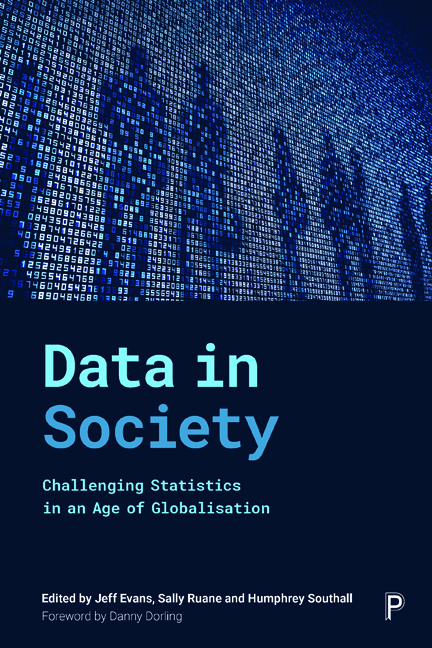Book contents
- Frontmatter
- Contents
- List of figures, tables and boxes
- Notes on contributors
- Foreword
- Preface
- General introduction
- Part I How data are changing
- Part II Counting in a globalised world
- Part III Statistics and the changing role of the state
- Part IV Economic life
- Part V Inequalities in health and wellbeing
- Part VI Advancing social progress through critical statistical literacy
- Epilogue: progressive ways ahead
- Index
26 - The quantitative crisis in UK sociology
Published online by Cambridge University Press: 30 April 2022
- Frontmatter
- Contents
- List of figures, tables and boxes
- Notes on contributors
- Foreword
- Preface
- General introduction
- Part I How data are changing
- Part II Counting in a globalised world
- Part III Statistics and the changing role of the state
- Part IV Economic life
- Part V Inequalities in health and wellbeing
- Part VI Advancing social progress through critical statistical literacy
- Epilogue: progressive ways ahead
- Index
Summary
Introduction
In the mid-to-late 2000s a series of studies firmly established that the output, practice and methodological pedagogy of UK social science (excluding psychology and economics) was, for the most part, not ‘quantitative’. ‘Quantitative’ was taken to mean using survey or experimental method and/or the statistical analysis of primary or secondary data. The discovery of the ‘quantitative deficit’ in this period prompted what we have called a revolution in the following decade, though whether that revolution will be consolidated we have yet to find out.
In this chapter we will describe these events and consider the status of quantitative methods, in UK social science today. The ‘deficit’ has been observed across most social science disciplines – including branches of geography, criminology, politics, education, and of management and business studies, though not economics and psychology. However, in this chapter we will primarily focus on the situation in sociology. This is partly because much of the previous research investigating the ‘quantitative deficit’ has been in that subject and partly because it is in sociology where humanistic approaches have been most visible (indeed partly because of the focus of research undertaken in this discipline). Two interrelated arguments will be made. The first of these is that UK sociology has never been quantitative and we consider that this applies broadly to its cognate disciplines, among which we include social policy, criminology and politics. While it is acknowledged that the country has some of the best large-scale datasets in the world and, undoubtedly, is also often at the cutting edge of methodological development, from its early beginnings UK social science disciplines (with the exception of psychology and economics) have been dominated by approaches which set themselves up as ‘humanist’, as opposed to ‘quantitative’. Quantitative social science has always been the exception and not the rule.
The second argument, and our conclusion, is that the revolution we speak of will not be consolidated unless the first argument is acknowledged and acted upon. Seeing the problem just as a deficit in numeracy misses the point that this is a deficit of science. In other words, the underlying problem is that UK social science suffers from a scientific deficit.
- Type
- Chapter
- Information
- Data in SocietyChallenging Statistics in an Age of Globalisation, pp. 337 - 348Publisher: Bristol University PressPrint publication year: 2019



